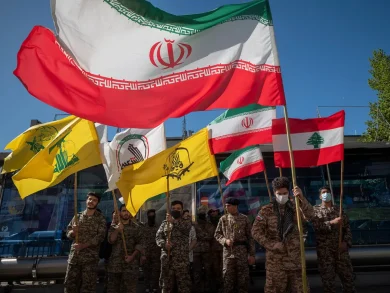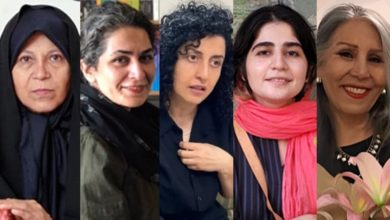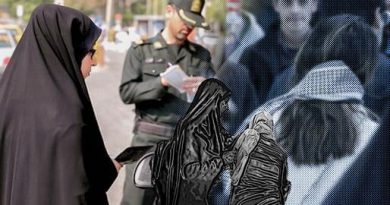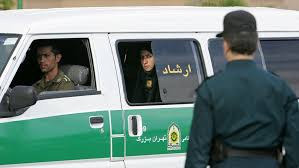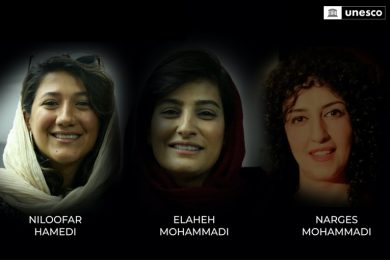The Islamic Revolutionary Guard Corps (IRGC) wields unparalleled influence in Iran, extending far beyond its role as a military force. Over the past four decades, the IRGC has built an expansive economic empire, encompassing major sectors such as construction, energy, telecommunications, and banking. This economic dominance not only sustains the IRGC’s vast military and political operations but also consolidates its power within Iran and enables its destabilizing activities abroad. This analysis explores the rise of the IRGC’s economic empire, its methods of control, and the consequences for Iran’s economy, governance, and international security.
The Rise of the IRGC’s Economic Empire
The IRGC’s entry into Iran’s economy began in the aftermath of the Iran-Iraq War (1980-1988). With the country in ruins, the IRGC was tasked with reconstruction efforts, granting it access to lucrative contracts and state resources. Over time, it leveraged this role to expand into virtually every major industry, becoming one of the most powerful economic entities in Iran.
1. Post-War Reconstruction
• Following the war, the IRGC established its engineering arm, Khatam al-Anbiya Construction Headquarters, which quickly became the largest contractor in Iran. It secured massive government contracts, often without competitive bidding.
• The IRGC used these projects to amass wealth, gain influence, and build a network of affiliated businesses.
2. Privatization and Economic Expansion
• During the 2000s, Iran implemented a privatization policy under Supreme Leader Ali Khamenei. The IRGC exploited this policy by acquiring state-owned companies at discounted prices, further entrenching itself in the economy.
• Through front companies and affiliates, the IRGC has gained control over industries such as oil and gas, transportation, and mining.
Sectors Controlled by the IRGC
The IRGC’s economic empire spans multiple sectors, giving it significant control over Iran’s resources and wealth.
1. Energy Sector
• The IRGC dominates Iran’s oil and gas industry, which accounts for a substantial portion of the country’s revenue. It is heavily involved in exploration, production, and infrastructure development.
• Khatam al-Anbiya plays a key role in energy projects, often taking over contracts from foreign firms forced out by sanctions.
2. Construction and Infrastructure
• The IRGC’s construction arm controls major infrastructure projects, including dams, roads, and railways. Its monopoly limits opportunities for private companies and stifles competition.
• The IRGC uses these projects to generate revenue while also embedding its presence in key areas of the country.
3. Telecommunications
• The IRGC has significant control over Iran’s telecommunications infrastructure, allowing it to monitor communications and suppress dissent.
• By owning telecommunications companies, the IRGC profits from both economic and surveillance activities.
4. Banking and Finance
• The IRGC operates through a network of banks and financial institutions that fund its activities and bypass international sanctions.
• These financial networks are critical for supporting its operations domestically and abroad, including funding proxy groups.
Methods of Control and Revenue Generation
The IRGC employs a variety of methods to consolidate its economic power and generate revenue:
1. Exploitation of Government Contracts
• The IRGC frequently secures no-bid government contracts, particularly for large-scale infrastructure and energy projects. This practice ensures a steady flow of revenue while marginalizing private competitors.
2. Front Companies and Shell Entities
• The IRGC uses front companies and shell entities to obscure its involvement in economic activities, particularly in sectors targeted by international sanctions.
• These companies operate both domestically and internationally, facilitating illicit trade and money laundering.
3. Smuggling and Black Market Activities
• The IRGC is heavily involved in smuggling operations, including oil, weapons, and other goods. These activities bypass sanctions and generate significant illicit revenue.
• Ports and border crossings under IRGC control are often used for smuggling, further undermining Iran’s formal economy.
4. Corruption and Nepotism
• The IRGC leverages its political influence to secure favorable policies and avoid scrutiny. Corruption is rampant, with IRGC-affiliated individuals often placed in key government positions.
Impact on Iran’s Economy and Society
The IRGC’s economic dominance has profound consequences for Iran’s economy, governance, and citizens:
1. Stifling Private Sector Growth
• The IRGC’s monopoly over key industries discourages private investment and innovation. Businesses that attempt to compete with IRGC-affiliated companies often face harassment, legal obstacles, or financial ruin.
2. Economic Inefficiency
• The IRGC’s projects are often plagued by inefficiency and corruption, resulting in poor-quality infrastructure and wasted resources.
• Public funds allocated to IRGC projects are frequently diverted for military or political purposes, depriving essential sectors like healthcare and education.
3. Widening Inequality
• The IRGC’s economic activities disproportionately benefit its leadership and affiliates, exacerbating income inequality and economic disparities within Iranian society.
• Ordinary citizens bear the brunt of sanctions and economic mismanagement, while the IRGC continues to profit.
4. Erosion of Accountability
• The IRGC operates with impunity, shielded by its political and military influence. This lack of accountability undermines governance and fosters widespread corruption.
International Implications
The IRGC’s economic empire extends its influence beyond Iran, funding activities that destabilize the region and threaten global security.
1. Funding Proxy Groups
• Revenue generated by the IRGC funds proxy groups like Hezbollah, Hamas, and the Houthis, enabling them to carry out destabilizing activities across the Middle East.
2. Sanctions Evasion
• The IRGC uses its financial networks and front companies to circumvent international sanctions, undermining global efforts to pressure Iran.
3. Threats to Global Markets
• The IRGC’s control over key sectors, particularly oil and shipping, allows it to disrupt global markets. For example, it has been implicated in attacks on oil tankers and infrastructure in the Gulf.
Efforts to Counter the IRGC’s Economic Influence
Addressing the IRGC’s economic empire requires a coordinated approach that targets its financial networks and reduces its influence:
1. Sanctions
• Targeted sanctions on IRGC-affiliated entities and individuals can disrupt their financial operations and limit their ability to generate revenue.
• Sanctions must focus on front companies, financial institutions, and key sectors controlled by the IRGC.
2. Transparency and Monitoring
• International organizations and governments must enhance transparency in financial transactions to identify and disrupt IRGC-linked activities.
• Greater scrutiny of shipping and trade networks can prevent sanctions evasion.
3. Supporting Iranian Civil Society
• Empowering Iranian civil society and independent businesses can weaken the IRGC’s monopoly and promote economic diversification.
• International support for anti-corruption initiatives and governance reforms can reduce the IRGC’s grip on the economy.
Conclusion
The IRGC’s economic empire represents a powerful tool for consolidating its influence within Iran and extending its reach abroad. By controlling key sectors of the economy, exploiting government contracts, and engaging in illicit activities, the IRGC perpetuates corruption, stifles growth, and funds its destabilizing operations. Addressing this challenge requires a combination of targeted sanctions, international cooperation, and support for Iranian civil society. Only by dismantling the IRGC’s economic stranglehold can Iran’s economy and governance begin to recover, creating opportunities for growth, transparency, and peace.
Join Our Newsletter!
Stay informed with the latest updates, news, and ways to take action in the fight for justice and global security. Sign up now to get updates delivered straight to your inbox!

